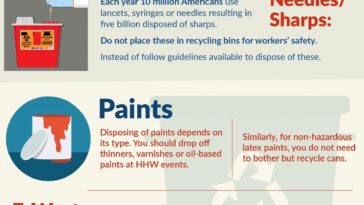Just How To Choose The Right Dumpster Size For Your Project: A Comprehensive Overview
Just How To Choose The Right Dumpster Size For Your Project: A Comprehensive Overview
Blog Article
Post By-Cabrera Hahn
When embarking on a task that calls for a dumpster, the size you select can considerably influence its performance and cost-effectiveness. Imagine having the excellent container that suits all your waste without being exceedingly huge or too small. It all begins with comprehending the subtleties of your job and selecting a dumpster size that straightens with your certain requirements. So, before roll-off dumpster rental decide, think about the variables at play to make certain a seamless waste management procedure throughout.
Aspects to Take into consideration
When selecting the ideal dumpster size, there are a number of key elements to consider.
First, think about the kind of waste you'll be throwing away. Different products may need differing amounts of room, so comprehending what you'll be putting in the dumpster is essential.
Next, examine the amount of waste you anticipate to create. If you ignore the quantity, you might need to make multiple trips to throw away every little thing, which can be inconvenient and expensive. On the other hand, renting out a dumpster that's as well huge can lead to unneeded expenses.
Additionally, think about the room where the dumpster will certainly be positioned. Make dumster rentals there's enough area for the dumpster to be delivered and picked up without any obstructions.
Last but not least, think about any weight restrictions that may apply. Going beyond the weight restriction can cause additional costs or even the rejection of service.
Dumpster Dimension Choices
For selecting the right dumpster dimension, it's essential to have a good understanding of the available alternatives. Dumpster dimensions usually range from 10 to 40 cubic yards, with variations in between.
A 10-yard dumpster is suitable for small tasks like a garage cleanout or a tiny restoration. If you're tackling a medium-sized task such as a cooking area remodel or a basement cleanout, a 20-yard dumpster might be the right option.
For bigger tasks like a whole-house restoration or industrial building, a 30 or 40-yard dumpster could be better to suit the volume of waste generated.
When choosing a dumpster size, take into consideration the quantity and kind of debris you expect to dispose of. It's better to choose a slightly larger dimension if you're not sure to prevent overfilling. Bear in mind, it's even more cost-efficient to rent out a dumpster that fits your needs rather than having to get an additional one.
Matching Size to Job
Efficiently matching the dumpster dimension to your task is vital for reliable waste management. To figure out the best dimension, think about the extent and nature of your project.
For little house cleanouts or restorations, a 10-yard dumpster may suffice. https://temporarydumpsterrental94817.blogvivi.com/31980026/avoid-these-problems-to-achieve-a-problem-free-dumpster-rental-experience are normally 12 feet long and can hold about 4 pickup truck loads of waste.
For bigger jobs like remodeling several rooms or clearing out a big estate, a 20-yard dumpster could be more suitable. These are around 22 feet long and can hold approximately 8 pickup truck loads.
If you're dealing with a significant construction task or business renovation, a 30-yard dumpster could be the best fit. These dumpsters are about 22 feet long and can accommodate about 12 pickup loads of particles.
Matching the dumpster size to your task guarantees you have sufficient area for all waste products without paying too much for extra ability.
Conclusion
Finally, picking the best dumpster size for your job is essential for efficient garbage disposal. By thinking about factors like the type and quantity of waste, room availability, weight limitations, and budget plan restraints, you can ensure you have the ideal size dumpster for your needs. Make sure to match the dimension of the dumpster to the extent and nature of your task to prevent overspending on unnecessary expenditures.
